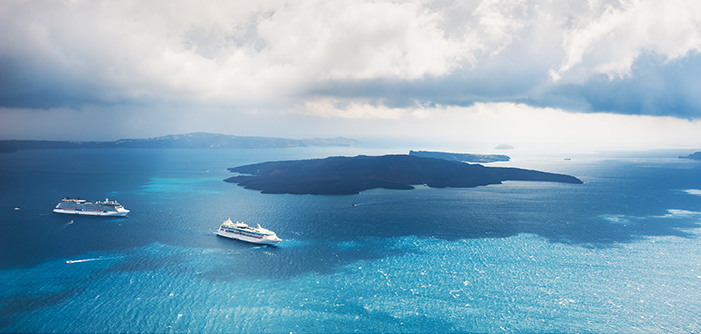As the Standard Club informs, the Convention for the Protection of the Marine Environment and the Coastal Region of the Mediterranean (Barcelona Convention) was adopted in order to reduce pollution and protect the marine environment in the Mediterranean Sea.
Peter Smith, Claims Executive, Standard Club and Rebecca Hamra, President / Regional Claims Director, Standard Club, report that the convention now has 22 contracting parties, all of whom have pledged to take measures to analyze and cut pollution from vessels sailing through the region.
[smlsubform prepend=”GET THE SAFETY4SEA IN YOUR INBOX!” showname=false emailtxt=”” emailholder=”Enter your email address” showsubmit=true submittxt=”Submit” jsthanks=false thankyou=”Thank you for subscribing to our mailing list”]
Specifically, various parties to the Barcelona Convention have supported the idea of establishing an emission control area (ECA) in the Mediterranean. If such ECA eventually happens, it would be the world’s fifth ECA, imposing additional restrictions on the allowable sulphur emissions from ships sailing through the area, setting the limit for sulphur at 0.1%.
If put in place this area would effect a large percentage of global shipping, as an estimated one third of the world’s merchant fleet crossing the Mediterranean Sea each year
Standard Club says.
Namely, France launched an impact assessment of the Mediterranean ECA at the start of the year, estimating that sulphur emissions could be decreased by up to 80% in some areas. The report also indicates possible benefits to coastal ecosystems, the health of local residents, as well as lists of potential benefits to local economies.
However, the creation of such an ECA will need a consensus between all states bordering the Mediterranean Sea. This could raise some problems, as some states could be concerned that imposing stricter limits on sulphur emissions will prevent ships from calling at their ports, thus reducing their income from maritime trade.
What is more, some may worry that the EU will try to influence the policing of these limits, a function which is currently assigned to individual port states.






























































